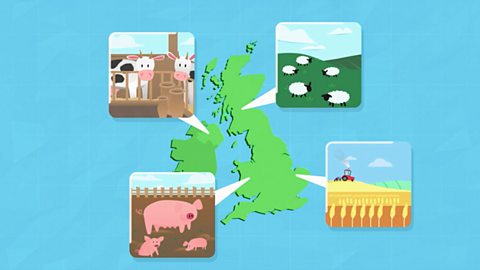What are geological resources?
Geological resources are a type of natural resource. This means they have been produced by the environment.
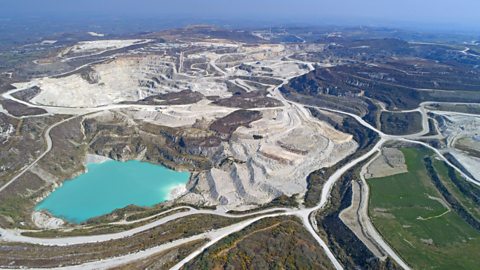
Resources found below ground are called geological resources. These include:
- Minerals like china clay, also known as kaolin
- Metals like tin and gold
- Fossil fuels like gas and oil
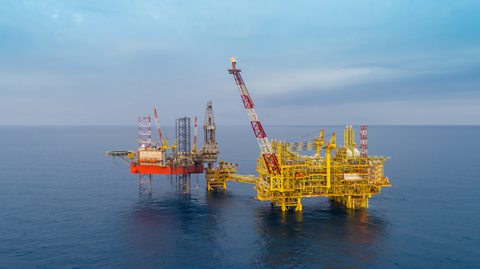
Examples of geological resources
- Minerals are naturally occurring substances, with a crystal structure, such as limestone, clay, iron ore and gold.
- Aggregates are materials in many small pieces, which are often used in the building industry, such as sand, gravel or crushed stone.
- Sand is the natural material that humans extract the most, after water. The demand for more buildings means that we need more and more of this material each year.
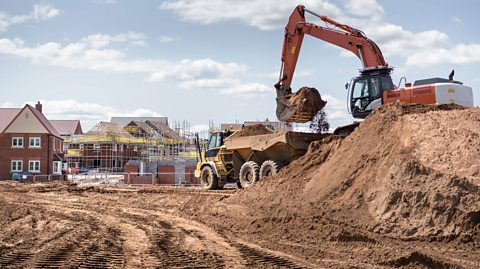
Watch: Natural resources
I’m stocking up on supplies. I need fuel, food and clothing and the UK is a good place to find all these things because it has a wide range of natural resources.
Natural resources are materials or substances that are produced by the environment, such as crops for food, oil for fuel or even wind, rivers and tides for generating electricity!
Our mild climate is good for growing crops like wheat and barley, as well as for raising livestock for meat and dairy produce.
Grassy hills are a habitat for sheep that provide wool for making fabrics.
These are called agricultural resources because they come from farms.
Resources found underground are called geological resources.
These include minerals like china clay, metals like tin and fossil fuels like gas and oil.
Fossil fuels were formed from the remains of plants and animals that died millions of years ago and we use them to power everything from cars and aeroplanes to gas cookers.
But nowadays we are using more power from renewable resources like wind and water instead.
Different countries have different natural resources.
South Africa has lots of gold and New Zealand has lots of sheep, Venezuela has lots of oil and Iceland has lots of fish and if I eat all these beans I’ll have lots of gas!
Quarrying
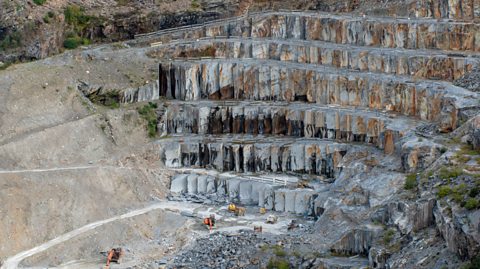
- Quarrying is the surface (ground level) extraction of minerals.
- The UK continues to quarry industrial and construction minerals such as sand and clay.
Mining
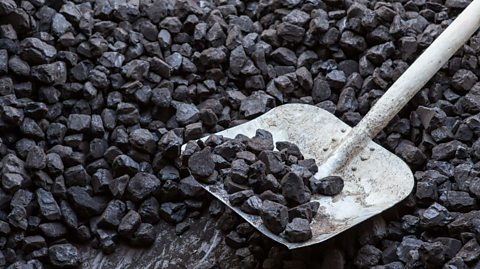
- Mining is the extraction of minerals below ground from valuable deposits (such as metal ores, coal and gemstones).
- The UK has a history of mining stretching back to the Bronze age. However, the industry has declined in recent years.
- The North Sea has been a rich area for mining fossil fuels such as oil and gas.
- The British government approves any new drilling licenses. However, there is an argument to focus on green, cleaner forms of energy, such as wind power instead.
- Coal mining was one of Britain’s biggest industries until the late 1960s. Coal was a main source of energy.
- Today, people know that fossil fuels are contributing to global warming and that coal pollutes the atmosphere, so scientists are trying to develop renewable energy technologies.

Gold mining
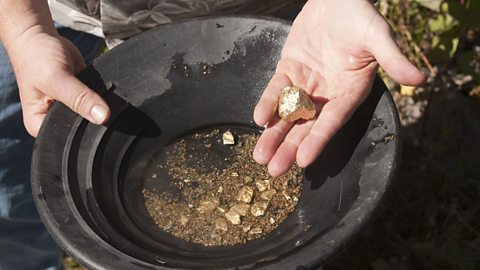
- Gold mining takes place on every continent but Antarctica.
- Mponeng Gold Mine in South Africa is the deepest underground mine. Its deepest level is almost 4 km below the surface. At this depth, the rock is so hot the mine uses 6,000 tonnes of ice a day to keep it cool.

Did you know?
- The UK mostly produces construction minerals including sand, gravel and crushed rock aggregates, as well as limestone, clay, slate and other minerals.
- The UK is also one of the world’s largest producers of kaolin. It is extracted from two sites in Devon and Cornwall, and mostly used in the paper and ceramics industries.
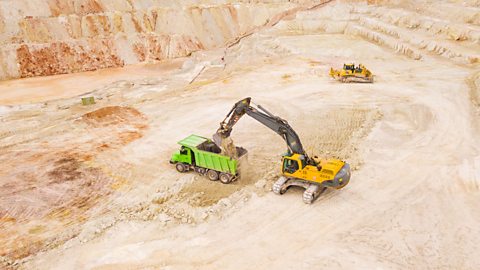
- Paper is not made entirely from wood. It contains kaolin, which makes it white.
- Renewable energy technology uses a variety of chemical elements sourced from minerals.
Activities
Activity 1: Fieldwork
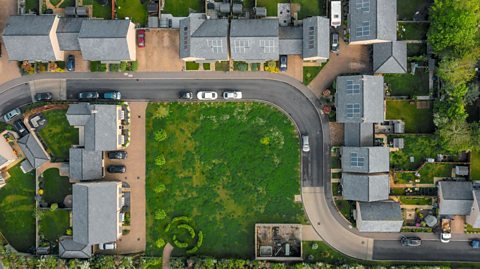
Walk around your local area and look for evidence of different minerals that are used in buildings, such as sand, bricks, stones, gravel, or concrete.
Take photographs and add descriptions and labels to a map.
Remember to make sure you're with an adult when doing your fieldwork.

Activity 2: Geological resources quiz
SATs preparation resources. activitySATs preparation resources
Get ready for the SATs papers with videos, activities, quizzes and games to refresh your knowledge and practise your skills.

More on Sustainability
Find out more by working through a topic
- count4 of 4
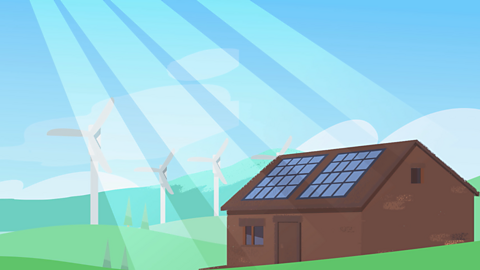
- count1 of 4

- count2 of 4
